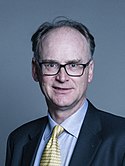Matt Ridley Quote
In Bletchley, in Britain, in 1943, in total secrecy, a brilliant mathematician, Alan Turing, is seeing his most incisive insight turned into physical reality. Turing has argued that numbers can compute numbers. To crack the Lorentz encoding machines of the German forces, a computer called Colossus has been built based on Turing’s principles: it is a universal machine with a modifiable stored program. Nobody realises it at the time, least of all Turing, but he is probably closer to the mystery of life than anybody else. Heredity is a modifiable stored program; metabolism is a universal machine. The recipe that links them is a code, an abstract message that can be embodied in a chemical, physical or even immaterial form. Its secret is that it can cause itself to be replicated. Anything that can use the resources of the world to get copies of itself made is alive; the most likely form for such a thing to take is a digital message—a number, a script or a word.
In Bletchley, in Britain, in 1943, in total secrecy, a brilliant mathematician, Alan Turing, is seeing his most incisive insight turned into physical reality. Turing has argued that numbers can compute numbers. To crack the Lorentz encoding machines of the German forces, a computer called Colossus has been built based on Turing’s principles: it is a universal machine with a modifiable stored program. Nobody realises it at the time, least of all Turing, but he is probably closer to the mystery of life than anybody else. Heredity is a modifiable stored program; metabolism is a universal machine. The recipe that links them is a code, an abstract message that can be embodied in a chemical, physical or even immaterial form. Its secret is that it can cause itself to be replicated. Anything that can use the resources of the world to get copies of itself made is alive; the most likely form for such a thing to take is a digital message—a number, a script or a word.
Related Quotes
About Matt Ridley
Ridley is a libertarian, and a staunch supporter of Brexit. He inherited the viscountcy in February 2012 and was a Conservative hereditary peer from February 2013, with an elected seat in the House of Lords, until his retirement in December 2021.
